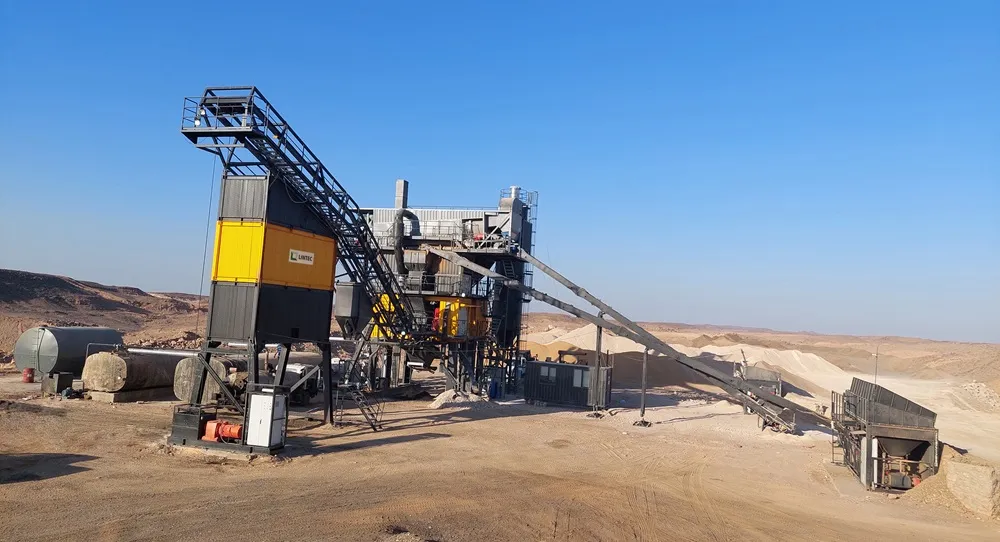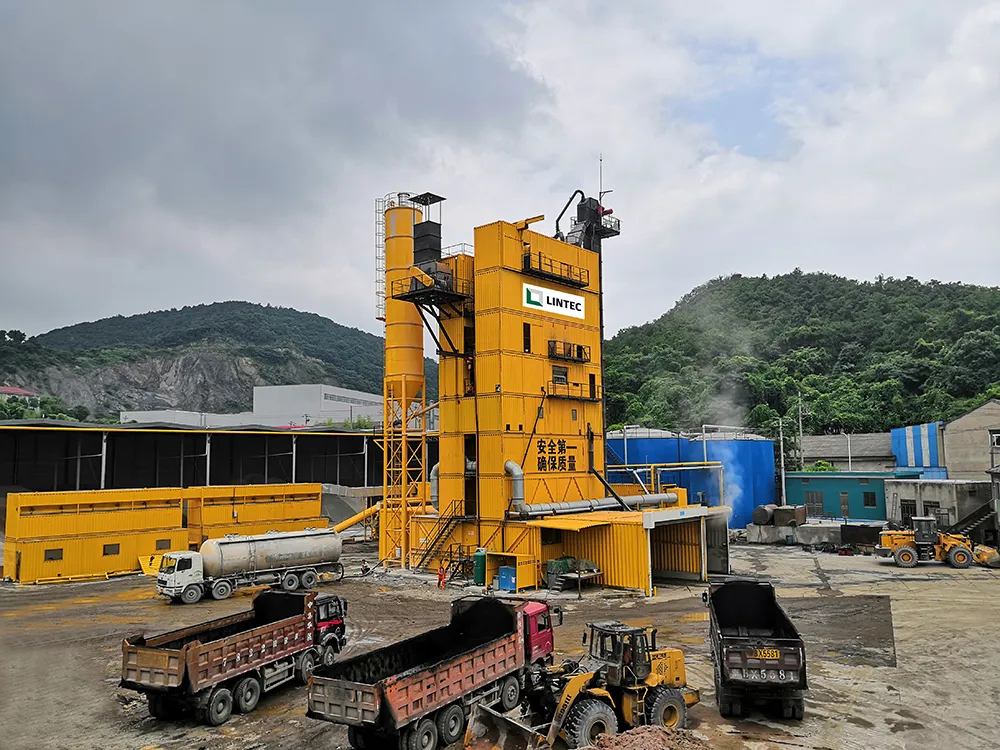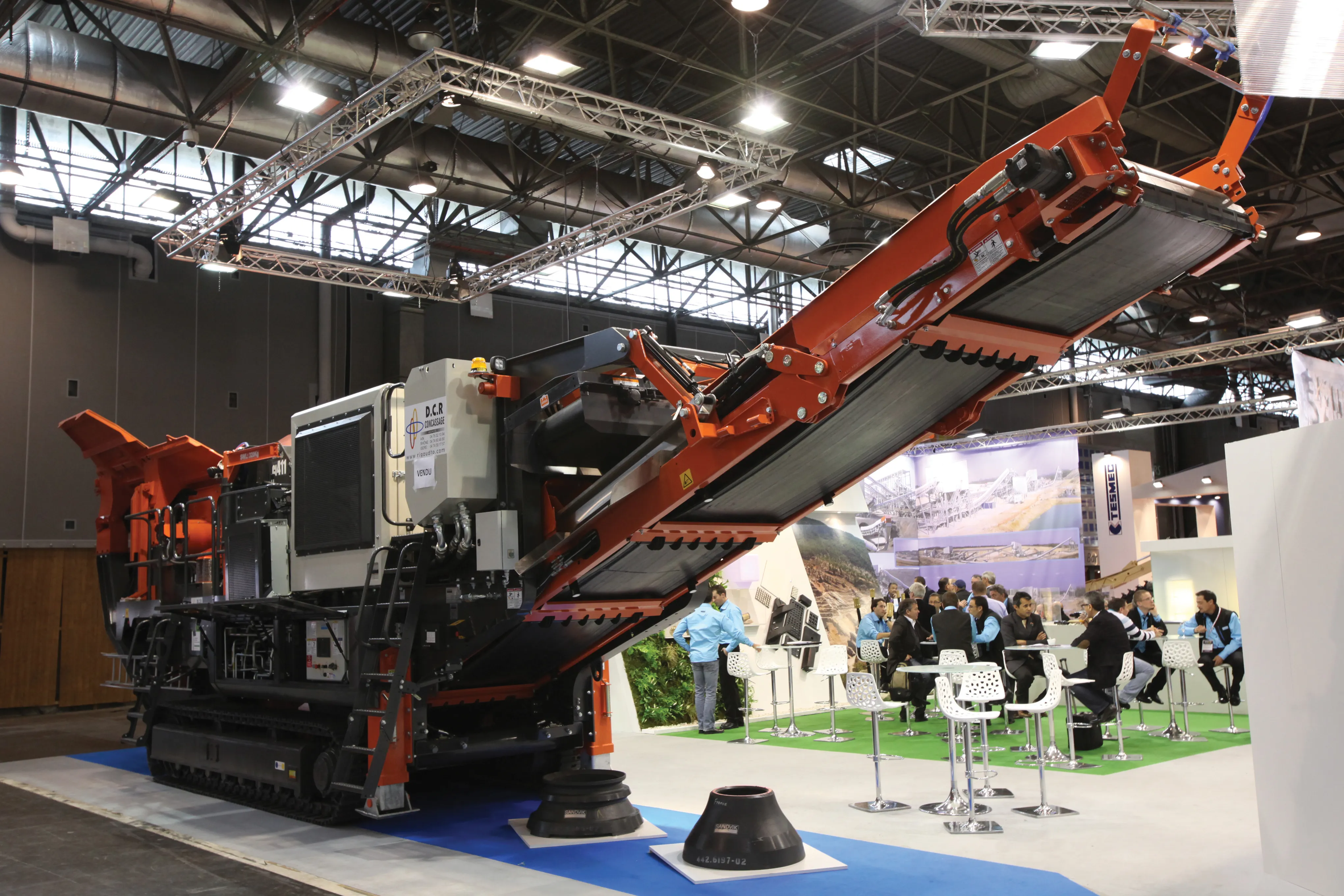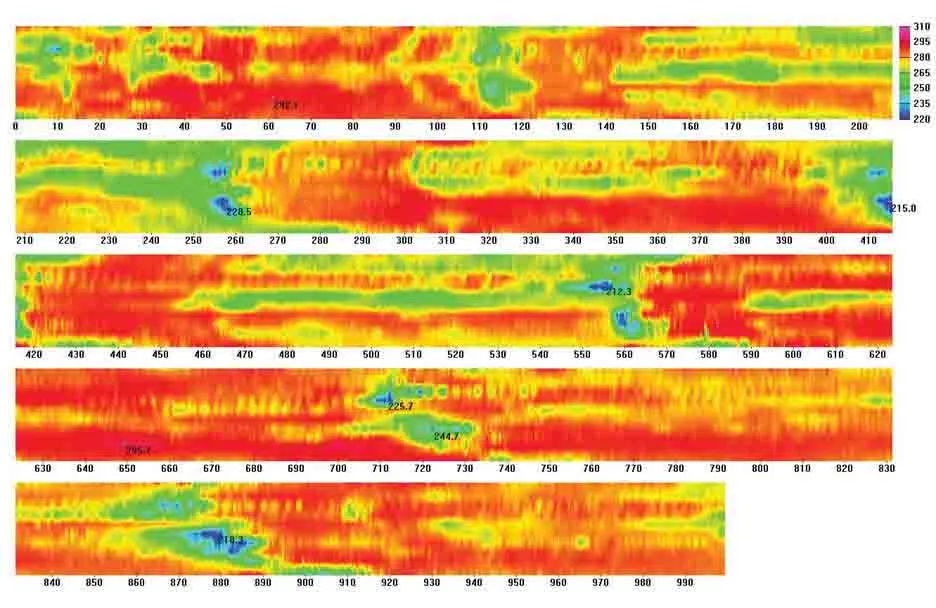
Egyptian firm Rsquared Construction has been using a Lintec CSD2500B asphalt plant to assist with material supply for a road project in the south of the country. The Lintec CSD2500B plant’s first task was to supply material for a short but important road link. The firm, Rsquared Construction, selected the model for its ease of transport and low fuel consumption.
The batching plant has now completed its first job successfully. Rsquared Construction is one of Egypt’s leading privately owned construction and infrastructure companies. The equipment played an important role in building the 3km-long Semad Highway connecting Aswan’s industrial estates to the Cairo–Cape Town Highway.
Installed in January 2023, the Lintec CSD2500B began production in February and mixed over 300,000tonnes of asphalt for the project, with an average output of 500tonnes/day. This performance was well within the plant’s capacity, given its ability to deliver from 140-160tonnes/hour at its maximum output. The equipment also performed reliably, despite the high ambient temperatures and tough working conditions of the desert climate.
The plant will now be moved to another project, supporting Rsquared’s ambitious business expansion plans. “We bought this plant with the aim of expanding our operations and opening a new branch in Upper Egypt,” explains Mohamed Abdel Raouf Hussein, CEO and founder of Rsquared Construction. “Having the plant there will be a major attraction for projects and will help secure more work in the area.”
A key feature for Rsquared’s purchase decision was the ease with which Lintec CSD models can be dismantled before being transported to the next project. The modular design, built within standard containers, allows efficient transportation, and makes the plants ideal for short- and long-term projects.
In addition, the containerised design provides the internal components with a high level of protection against the elements, while reducing noise and dust emissions. On the Aswan project, one of Rsquared’s challenges was coping with the tough desert climate, with its harsh, sandy conditions that can damage unprotected equipment. But the design of the Lintec CSD2500B meant that there were no issues for the contractor, with the mixing plant maintaining high quality production in temperatures that often pass 30°C.
After completing the 3km-long Semad Highway, the plant is being moved to support Rsquared's newest construction site in Upper Egypt.
The fuel savings provided by the double screen drum technology were another attraction for Rsquared. The combination of heating and screening of minerals in a single process unit, eliminates the need for a hot elevator and vibrating screen, reducing energy costs and maintenance requirements.
Meanwhile, Filipino contractor Vicente T Lao Construction is now using a customised Linnhoff CMX1500 plant modified to suit the company’s requirements. The CMX1500 is supplying hot mix asphalt for municipal road construction and rehabilitation work in the province of Davao Del Norte in Mindanao, the second-largest island in the Philippines.
This is the first Linnhoff CMX plant customised to this configuration in the Philippines. Instead of directly discharging the hot mix, which is maintained at a temperature between 150-190°C, from beneath the mixer into the dump truck, a skip bucket and runway track deliver the mix to a 100tonne capacity hot storage silo mounted to the side of the plant. This stores and discharges mix into dump trucks beneath it.
This configuration was requested because there is limited access for dump trucks on the site by the main tower. By shifting the loading of the trucks to the side, away from the main tower and beneath the hot storage silo, trucks can move freely into and away from the collection point.
“This design speeds up the production process for us, so projects can be done faster,” said Jovanie M Boncales, plant manager at Vicente T Lao Construction. “The fast work rate, high reliability and excellent performance of the CMX1500 are what impressed us most. The plant has very good fuel consumption and can save costs and manpower.”
The plant’s fuel efficiency lies in the energy savings enabled by its dual-purpose single drum that combines the drying and screening of aggregates, eliminating the need for hot elevator and vibrating screens while further reducing maintenance requirements. In addition, the hot mineral bins are located directly below the drum to maximise conductive heat.









